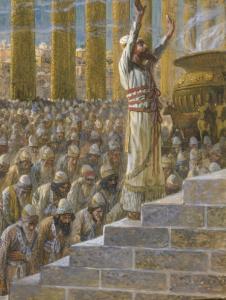The Bible teaches us much about forgiveness, and here’s some of the best Bible verses on that subject.
Forgiven
Since we’ve been forgiven so much, it’s important that we learn or choose to forgive others, so my hope is that these Bible verses about God’s forgiveness will help us to forgive others more easily, especially considering how much we’ve been forgiven. After David had committed adultery and conspired to have Bathsheba’s husband murdered, he wrote perhaps the greatest chapter on repentance and forgiveness. In Psalm 51:7-12 David prays to God, “Purge me with hyssop, and I shall be clean; wash me, and I shall be whiter than snow. Let me hear joy and gladness; let the bones that you have broken rejoice. Hide your face from my sins, and blot out all my iniquities. Create in me a clean heart, O God, and renew a right spirit within me. Cast me not away from your presence, and take not your Holy Spirit from me. Restore to me the joy of your salvation, and uphold me with a willing spirit.” David knew, even then, that “If we confess our sins, he is faithful and just to forgive us our sins and to cleanse us from all unrighteousness” (1 John 1:9). Our forgiveness is free, but it comes at great expense to God, because, “In him we have redemption through his blood, the forgiveness of our trespasses, according to the riches of his grace” (Eph 1:7).
Forgiving
Isaiah 1:18 is a great verse about God’s forgiving nature. Isaiah writes, “Come now, let us reason together, says the LORD: though your sins are like scarlet, they shall be as white as snow; though they are red like crimson, they shall become like wool.” Now that is a cleansing! The Apostle Paul writes about forgiveness in saying we should “Be kind to one another, tenderhearted, forgiving one another, as God in Christ forgave you” (Eph 4:32). Notice that Paul includes the word “as,” meaning in the same way God forgave us, we must forgive others. Jesus said something similar, saying that “if you forgive others their trespasses, your heavenly Father will also forgive you, but if you do not forgive others their trespasses, neither will your Father forgive your trespasses” (Matt 6:14-15). God has forgiven us infinitely more than anyone could ever sin against us for, in a million lifetimes, so we ought to be “Bearing with one another and, if one has a complaint against another, forgiving each other; as the Lord has forgiven you, so you also must forgive” (Col 3:13). Jesus went even further, saying, you must “love your enemies, and do good, and lend, expecting nothing in return, and your reward will be great, and you will be sons of the Most High, for he is kind to the ungrateful and the evil. Be merciful, even as your Father is merciful” (Luke 6:35-36). Jesus also compares the forgiveness we’ve received for reason to forgive others. In that way, “you will be sons of the Most High,” because that’s what the sons and daughters of God do.
Forgetting
We should forgive others, not only because God has forgiven us, but because it’s the right thing to do, but then once we’ve forgiven them, we can’t keep bringing it up. If it’s buried, and you’ve had the funeral, don’t exhume the unforgiven sin! God does not do that with us and neither should we do that with others. If we keep reminding them of their sin against us, have we really forgiven them? By constantly or occasionally bringing up past grievances, we show we’ve not really forgiven them, because it’s still on our minds! Once more let Jesus’ teaching soak into our brains: “Judge not, and you will not be judged; condemn not, and you will not be condemned; forgive, and you will be forgiven” (John 6:37). It’s not easy to forgive others for what they’ve done to us, but think about this. It’s not easy for others to forgive us either, but God’s forgiven us, so we must do the same for others. We don’t wait till we feel like forgiving someone. Forgiveness is a choice. Jesus didn’t feel like going to the cross, but He knew it was the only way.
National Repentance

If ever there was a time for a national prayer of repentance, this is it. In 2 Chronicles 7:14-15 Solomon wrote, “If my people who are called by my name humble themselves, and pray and seek my face and turn from their wicked ways, then I will hear from heaven and will forgive their sin and heal their land. Now my eyes will be open and my ears attentive to the prayer that is made in this place.” God is nearer to the humble than the proud (James 4:6). He is near the crushed and broken hearted (Psalm 34:18). He hears our confession of sin and forgives us of our sins once we’ve trusted in Christ, but the Book of Hebrews shows that there is no forgiveness of sins without the shedding of blood (Heb 9:22), but we who believe have received this forgiveness “with the precious blood of Christ, like that of a lamb without blemish or spot” (1 Pet 1:19).
Conclusion
Revelation 3:5 tells us that “The one who conquers will be clothed thus in white garments, and I will never blot his name out of the book of life. I will confess his name before my Father and before his angels,” so who are these in white garments? When the elders saw the redeemed, they asked, “Who are these, clothed in white robes, and from where have they come?” I said to him, “Sir, you know.” And he said to me, These are the ones coming out of the great tribulation. They have washed their robes and made them white in the blood of the Lamb” (Rev 7:13-14). What a privilege to come to God in prayer and be cleansed of all unrighteousness. If you know someone who’s struggling with forgiving others or forgiving themselves, why not share this article with them, and why not do it right now?
Article by Jack Wellman
Jack Wellman is Pastor of the Mulvane Brethren Church in Mulvane Kansas. Jack is a writer at Christian Quotes and also the Senior Writer at What Christians Want To Know whose mission is to equip, encourage, and energize Christians and to address questions about the believer’s daily walk with God and the Bible. You can follow Jack on Google Plus or check out his book Teaching Children the Gospel available on Amazon.











